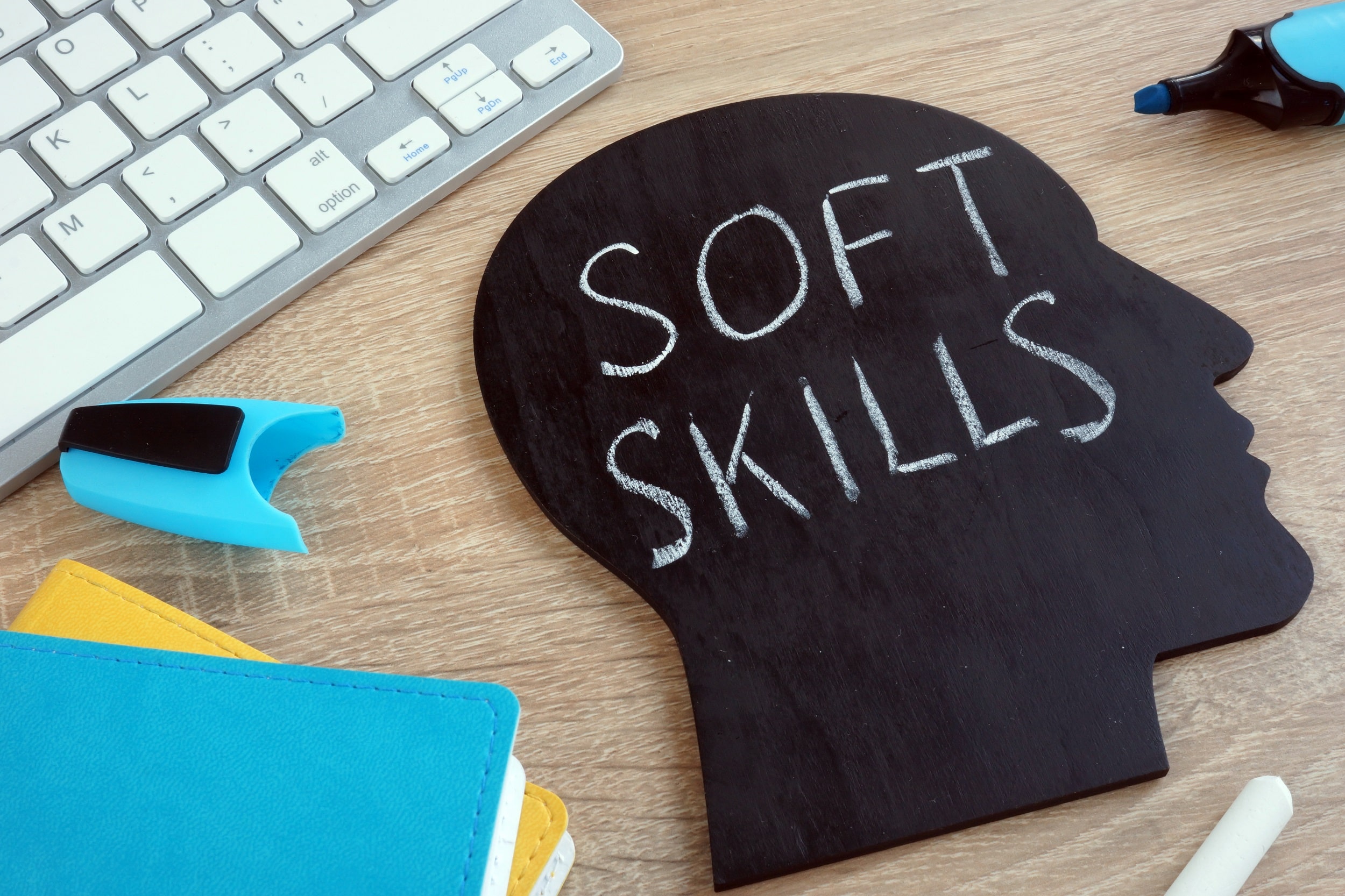In an increasingly fluid and unstable ecosystem, sharpened soft skills will enable you to improve your performance. adaptability and your ability to bounce back. A certified coach, Charlotte Michelin draws up the 2021 list of soft skills for managers.

Companies and recruiters are no longer just looking for know-how. In addition to your training and professional experience, more and more of them are taking an interest in your soft skills. But what exactly are soft skills?
Soft skills are your personal aptitudes and human qualities that can generally be grouped together under the term "interpersonal skills". They are also often referred to as "behavioural knowledge" or "behavioural skills".
In general, you like to work with people who are flexible, good listeners and pleasant. People who are prepared to immerse themselves in their work. role and their functions to bring out the best in themselves and progress. It's no secret that your colleagues generally have the same expectations of you.
Your soft skills will make all the difference, whether you succeed in an interview or in your professional life. You have everything to gain by cultivating them on a daily basis. You can also strengthen them through training.
Top soft skills in 2021
Managers, here are the soft skills that will enhance your professional image and give your career a boost:
1/ Problem solving
In a context of rapid change and ultra-competitiveness, you absolutely must be 'solution' oriented. In other words, you need to be able to deconstruct a problem and come up with a solution. And to tackle a difficult situation or a complex problem, you need to :
- focus on what you want;
- ask yourself why you're doing it;
- identify the resources needed for change ;
- define a precise action plan with a deadline.
2/ Confidence
Confidence is one of the most sought-after soft skills. It means having confidence in oneself and in others.
As a manager, show that you have confidence in your staff. team by involving them in your strategy. They will feel recognised and valued. This attitude allows you to co-construct your professional environment.
3/ Emotional intelligence
Emotional intelligence or emotion management? Here, we're calling on your ability to step back and identify your emotions and those of others, so that they don't overwhelm you or your team.
Anticipating risk situations for yourself or your employees will help you to overcome them more effectively.
4/ Empathy
Closely linked to emotional intelligence, theempathy is about "understanding the other person's reality". In other words, putting yourself in their shoes for a few moments to determine the best possible option.
Although the line may seem fine, empathy is not the same as sympathy. Sympathy would be like stealing to the other person's rescue and doing things for them... which could turn into an unhealthy psychological game. Empathy, on the other hand, is about giving the other person the keys so that he or she can progress independently.
5/ Communication
Good communication isn't innate. In writing, be precise, concise and clear: subject, verb, complement. One key piece of information per sentence is enough. By delivering your essential message to your audience, you gain in clarity and energy, and your audience gains in understanding and effectiveness.
6/ Time management
Ah time! Who misses a 24-hour day? Do you run a lot, do you multitask, do you find it hard to get organised? I'm not telling you anything new: you can't manage your time, but you can learn to manage yourself over time!
Start by identifying the things that aren't really that useful and that waste too much of your time. What do you think about disconnecting digital/collaborative apps for a few moments?
Personally, to stay focused without interruption, I like to use the Pomodoro technique. I divide my working hours into mini sprints of 25 minutes, during which I have to work as efficiently as possible on tasks that have been clearly defined in advance. The idea is to stay focused on the same task for as little time as possible for maximum efficiency.
7/ Stress management
Le stress chronic fatigue is destructive: it steals your energy, exhausts your brain, makes decision-making difficult and destroys your self-confidence.
What can you do about it? Talking to someone you trust is already the first step towards unburdening your brain. You can also turn to training courses such as : Managing stress and Managing stress, advanced training.
8/ Creativity
All professions need creativity. It's about making connections between things, ideas, people... to bring about innovation and new perspectives.
To boost your creativity, I recommend using the mind mappingAlso known as a mind map. Starting with a key idea, this type of tool allows you to quickly define all its ramifications.
9/ The entrepreneurial spirit
Proactive, bold and energetic! Be positive, solution-oriented and sharing. If you want to see things change, be proactive. For example, you could start by setting yourself a mini challenge every week. This will stimulate your spirit and your desire to take on new projects.
10/ Motivation
It's about finding motivation for yourself but also knowing how to pass it on to others. Give meaning to what you do and the synergy around you will come naturally.
11/ Positive visualisation
Visualisation is your ability to see the path you need to take to reach your goal. This means starting by defining your objective precisely.
There are a number of ways to train your brain to visualise events as you want them to happen, including NLP. Learn to visualise your day, an important meeting or a project in a positive way! A little extra: it will also help you to get rid of certain fears.
12/ A sense of community
Alone we go faster, together we go further. Make the wisdom of this proverb your own! Take the time to listen to your team so that we can move forward together. Train yourself in the tools and techniques that promote teamwork. team cohesion.
13/ Decision-making
Trust yourself. Learn to identify your priorities more quickly.
Define all your tasks in a weekly diary. Try to assign them a level of urgency: is there a deadline? And a criterion of importance: what does it mean to you? What need does it meet?
Based on these indicators, ask yourself which task will have the greatest impact on your day-to-day organisation (both negatively and positively). Once you have clearly identified your priorities, act accordingly.
Any advice on how to develop your soft skills?
Choose one or two soft skills in which you have the most difficulty. Challenge yourself in a situation that will enable you to improve them.
You're not comfortable in communication orally? Take advantage of an important event such as the half-yearly closing of your team's results to take the floor. Or apply to introduce the company's next seminar.
Feeling nervous about managing your emotions? Suggest a chat over coffee at a colleague with whom you don't get on very well.
Take it one step at a time: a little each day, one step at a time... And above all, do it for yourself!


